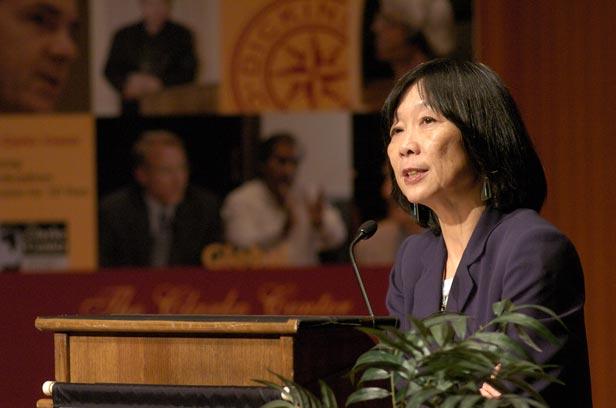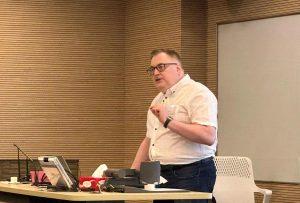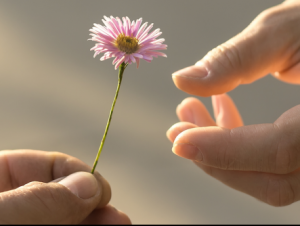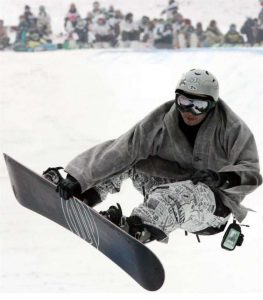
About the ACLS
Formed in 1919, the American Council of Learned Societies (ACLS) is a private, non-profit federation of 72 national learned societies. As representative of American scholarship, the ACLS supports work across the humanities and humanistic social sciences, such as history, religion, and art history. Its main activities include awarding fellowships and strengthening relations among learned societies. In 2012–13, the organization gave over US$15 million in fellowship stipends and other grants to more than 320 scholars in the United States and elsewhere, through a rigorous peer-review procedure.* I caught up with ACLS president Professor Pauline Yu at The Robert H. N. Ho Foundation’s booth at the IABS congress, where she kindly granted me an interview.
A world-renowned scholar of Chinese poetry—especially that of Wang Wei—Pauline told me that she became president of the ACLS in 2003 after serving as dean of humanities and professor at a number of universities, including UCLA, for 26 years. “It was a great honor because it [ACLS] is an international platform to promote the importance of the humanities,” she reflected.
To Pauline, the ACLS is a strong organization despite having only a small endowment. The staff works closely with a few foundations to augment fellowship awards and initiate potential programs. For instance, following the 2008 recession, in 2009 the ACLS launched the New Faculty Fellows post-doctoral program, which ended in spring this year. The program offered a two-year fellowship for about 65 PhD graduates each year in four cycles. Additionally, the ACLS formulated a ten-year plan and initiated a five-year Luce program to develop the humanities in Eastern Europe, while another ten-year program is ongoing in Africa. With the Luce foundation, the ACLS has further supported American scholars in their fieldwork and Chinese and Southeast Asian archeologists joining methodology workshops in the US.
The ACLS currently runs about 15 programs every year. There are over 1,000 applications each for the central fellowship and dissertation programs, and 2,000 applications altogether for other programs. Pauline commented that the heavy workload is handled by a very small staff, and that the ACLS is therefore very efficient!
The Robert H. N. Ho Family Foundation Program in Buddhist Studies
In 2013, the ACLS and The Robert H. N. Ho Family Foundation began a formal collaboration to launch fellowships in Buddhist Studies, and this year, Pauline joined the foundation’s Board of Directors.
“Almost three years ago, I read about the foundation and was very impressed by what they were doing to support Buddhist Studies and Chinese art,” revealed Pauline. “It is a fascinating world of philanthropy, in that families have the opportunity to make an impact [on academia]. I visited the foundation in Hong Kong to ask whether they were interested in working with us.” Around that time, the foundation had just begun a strategic planning exercise that was more ambitious than anything they had previously done, including the adoption of a more open and systematic approach through the use of a peer-review procedure. After two years of discussions, the foundation’s board finally approved a collaboration with the ACLS, and in 2013–14, applications were invited for the first batch of fellowships for the academic year 2014–15. “We had a very interesting and productive discussion about what exactly would be most beneficial to the field,” Pauline commented.
Working with the foundation, the ACLS offers dissertation fellowships and post-doctoral fellowships to support young scholars in Buddhist Studies, which is a priority for the ACLS. In order to promote synergy and strengthen international cross-disciplinary networks in Buddhist Studies, collaborative research fellowships and a distinguished visiting professorship are also awarded to enable the sharing of new ideas and perspectives. These competitive grants will facilitate the understanding and interpretation of Buddhism in a wide range of areas, including history, philosophy, archeology, art history, anthropology, philology, and religious studies.
The overall aim of the collaboration with the foundation is to establish a global network of scholars in Buddhist Studies. “I think it is a very exciting goal,” enthused Pauline. Therefore, unlike most ACLS fellowships, which are restricted to American citizens, the fellowships supported by the Ho foundation are open to all: anyone can apply from anywhere, and work at any location.
Pauline admitted that the first year posed some challenges—although the response was great, established practices and protocols, as well as expectations, were different from country to country. This made the work of the selection committee especially difficult. “There were a lot of discussions. The meetings were always lively, and very interesting, but exhausting, too,” she told me.
The Value of the Humanities to Society
At the end of our conversation, I invited Pauline to share her views on the value of the humanities to society today. Unhesitatingly, she said, “I am convinced that any field of interest is worth pursuing. So I do not think that only certain areas are either interesting or suitable for long-term study. And I would say in particular that what you learn in the humanities is going to serve you in good stead no matter what you end up doing.”
As Pauline shared, in the US, employers are interested in critical thinking and the ability to communicate and read analytically. A number of surveys have indicated that humanists are greatly valued by US employers and perform as well as people who are trained in science and technology. It is interesting that there are many misconceptions about the supposed “uselessness of the humanities,” whether in the contemporary US or Chinese societies.
“It is absolutely not true,” said Pauline definitively.
*A peer-review procedure with two anonymous reviewers is adopted generally for reviewing articles in academic journals. For the ACLS fellowships, while the final decision rests with an interdisciplinary panel of scholars who meet in person, applications are first screened by anonymous reviewers.
Acknowledgements
I would like to express my gratitude to Prof. Pauline Yu for sharing her time and information.
The Robert H. N. Ho Family Foundation Program in Buddhist Studies 2014–15
The American Council of Learned Societies (ACLS) announces the second year of an initiative to support research and teaching in Buddhist Studies funded by a US$1.9 million grant from The Robert H. N. Ho Family Foundation. Read more about the program here.














